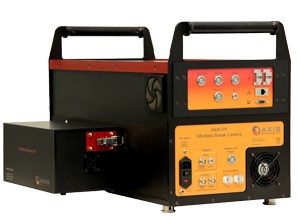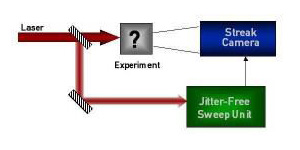AXIS-PV: Ultrafast Visible-IR Streak Camera
AXIS-PV SPECIFICATIONS
STREAK TUBE
PHOTONIS bilamellar family: These UNIQUE tubes use bilamellar optics to provide a picosecond temporal resolution whilst maintaining excellent spatial resolution.
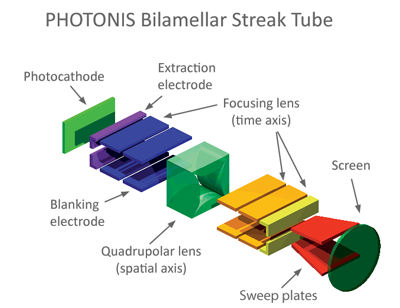
SPECTRAL RESPONSE
|
The streak tube can be built with different cathodes and input windows:
|
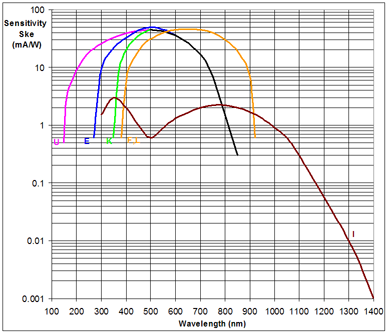 |
SPATIAL RESOLUTION
Photocathode length (X): 18 mm
Spatial Resolution (dx): 40µm with 50% contrast
Number of spatial resolution units in screen (X/dx): 450 points
TIME RESOLUTION
Available Ranges (ΔT): 200 ps to 1 ms
Number of time-resolution units in screen (Nt): 675
Single-shot time resolution (δt): δt = ΔT / Nt * Limited to 1 ps
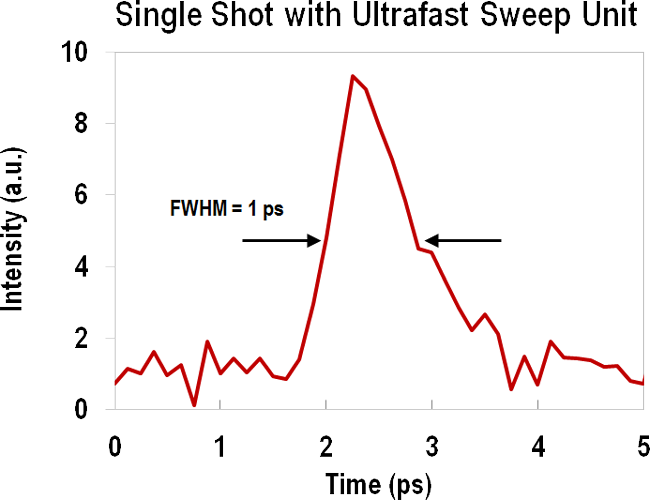 |
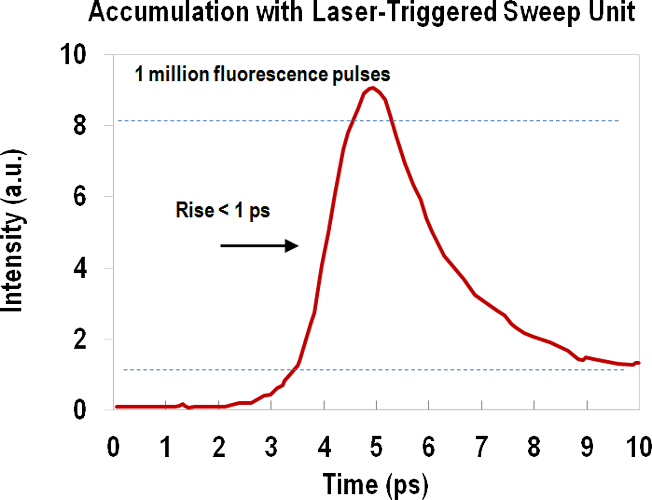 |
| Time profile measured from a single 100 fs laser pulse at 800 nm. | Time profile measured from a fluorescent sample illuminated by 100 fs laser pulses at 1 kHz repetition rate. This signal is the result of a 17-minutes accumulation (1 millions of shots). |
TRIGGER
| Standard Single-Shot Sweep Units | Optional Laser-Triggered Sweep Unit | |
| Trigger pulse | Electrical | Femtosecond laser |
| Requirements | 5-10 V in 50Ω, 50-200 ns duration | 100 μJ @ 800 nm |
| Maximum repetition rate | 100 Hz | 5 kHz |
| Jitter | < 15 ps RMS | ~ 1/2 ps (depending on the properties of the laser) |
READOUT
Readout type: -30 °C Thermo-Electrically-Cooled Digital camera
CCD chip size: 2048 x 2048 pixels; 27 mm x 27 mm
Digitizer: 16 bits
Coupling to streak tube: 1:1 Fiber optic taper
Cooling: 15-20 °C cooling water is required for the CCD camera
OPERATION MODES
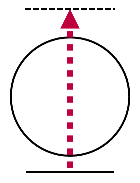 |
Normal sweep The sweep crosses the whole screen and ends outside. |
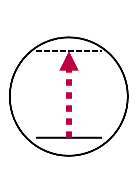 |
Timing mode The sweep always remains in the screen. It is used to synchronize the streak camera to the experiment. |
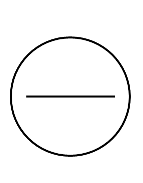 |
Focus mode The slit image is positioned at the center of the screen. The sweep trigger is disabled. This mode is used to align the experimental setup and to adjust the incident light level. |
INTERNAL COMPUTER and SOFTWARE
AXIS-PV is an autonomous system that is operated locally by connecting a monitor, a keyboard and a mouse.
It comes with an internal computer that controls the streak tube supplies, the sweep circuits, monitors voltage stability, performs different self tests and safety checks. It can also control other optional peripherals via the USB port.
All required software comes pre-installed on the system. It is used to:
- Control whole system and acquire images
- Control the laser system (optional)
- Plot lineouts along time axis or space axis
- save image in different formats
Remote control over Gigabit Ethernet :
- “Windows Remote Desktop”
- Web base GUI
- High level device servers (TANGO, OPC, etc…) are available.
GENERAL
Electrical input: Universal AC, 110-240V, 50-60 Hz
Certification: CE
Tests and Calibration: Before shipping, each system is tested on a femtosecond laser at the Advanced Laser Light Source.
Installation and Training: A qualified engineer is sent to your laboratory to install the system and train users.
OPTIONS
Blanking circuits
With the blanking option, streak tube is blocked during the time the signals sweeps back to its start position. This feature is required when the optical signal lasts longer than the sweep range.
Remote control over Optical Ethernet
to operate system via optical Ethernet 1 Gbs (1000 Base SX).
Laser-triggered sweep unit for CPA lasers
Because of its 500 fs RMS jitter, this unit allows the analysis of ultrafast events at repetition rates up to 5 kHz while conserving the excellent spatial and temporal resolution of the AXIS streak camera. This is the ideal tools ultrafast spectroscopy with large dynamic range and high signal-to-noise ratio It requires about 100 µJ per laser pulse.
Timing fiducial input fiber
This assembly allows sending a timing UV pulse on the photocathode. This pulses is sent through a UV optical fiber. This is to record an absolute time reference on each shot.
Slow scan mode
Operation mode in which the sweep crosses the whole screen in 0.5 to 15 second. It is used to characterize spatial non-uniformity in the instrumental response by illuminating it with a constant brightness light source.
24V supply
To power the whole system with a DC voltage between 23V and 28V.
Spectrometer
spectrometer that fits special needs.

